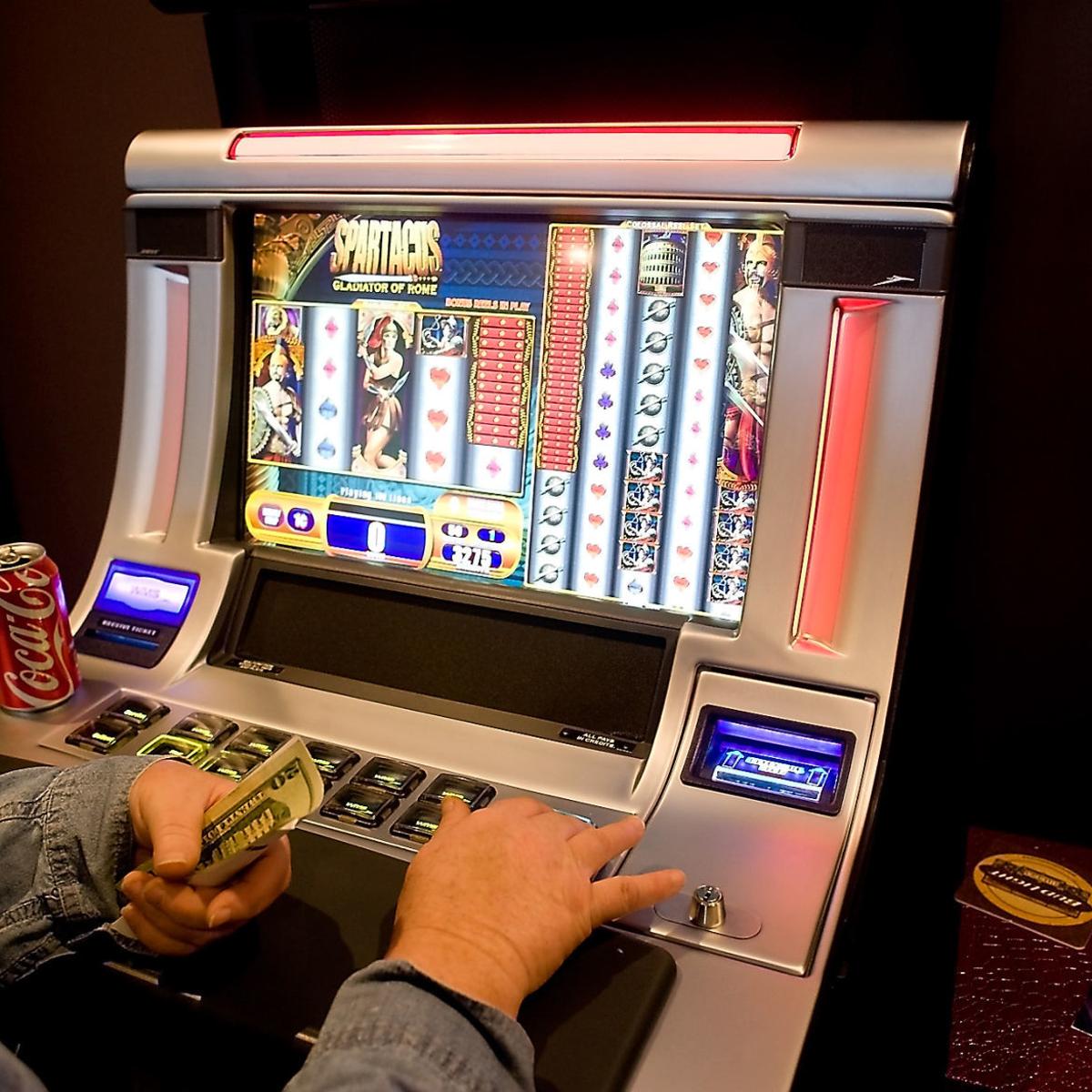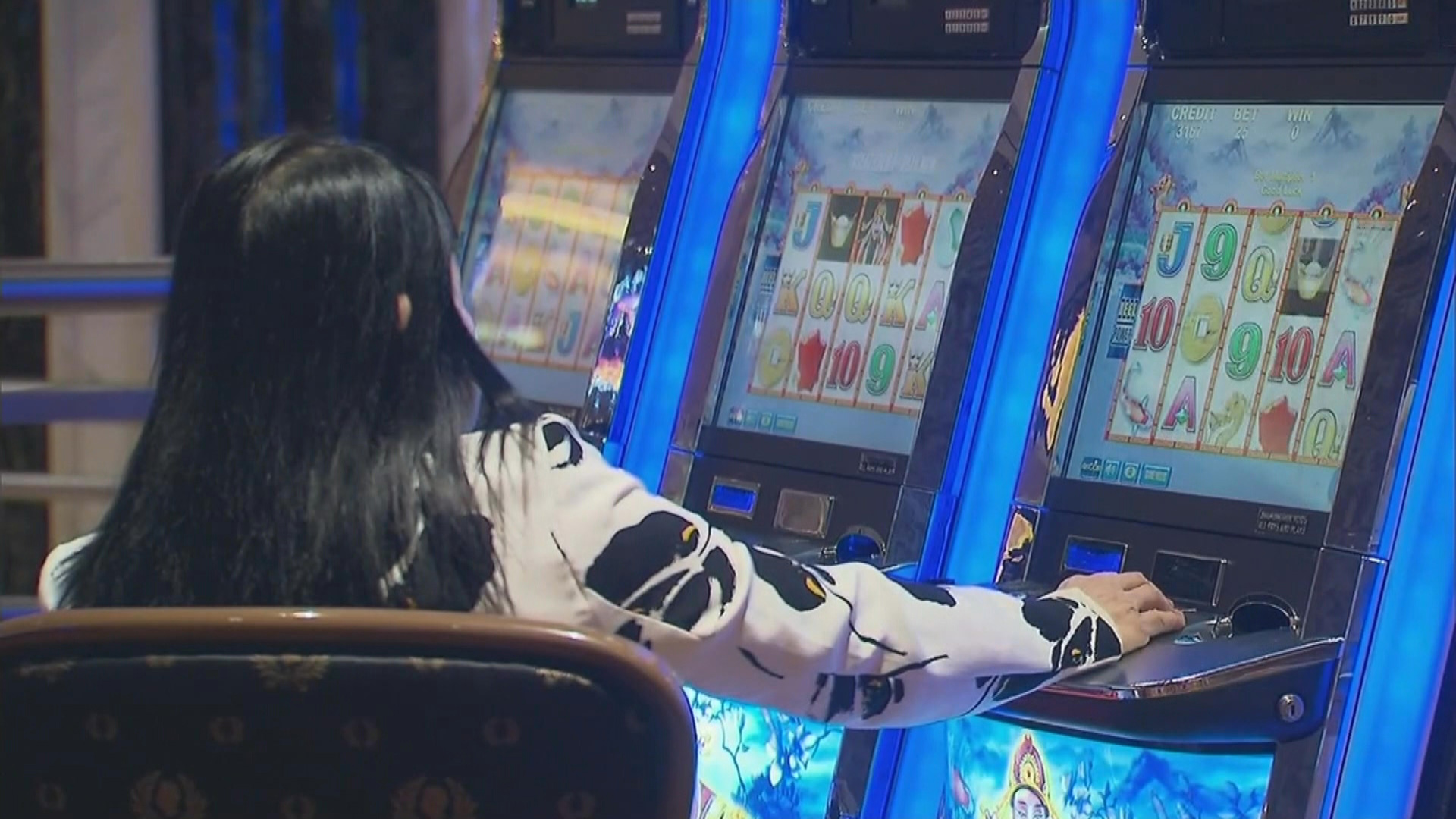bonertifan1985.netlify.com
Illinois Gambling Self-exclusion List
- Illinois Gambling Self-exclusion List 2020
- Illinois Gambling Self-exclusion List By Name
- Illinois Gambling Self-exclusion List Crawler
- Illinois Gambling Self-exclusion Listing
Section 3000.755 Information Required for Placement on the Self-Exclusion List Section 3000.756 Stipulated Sanctions for Failure to Adhere to Voluntary Self-Exclusion Section 3000.760 Distribution and Availability of Confidential Self-Exclusion List. The list contains 20 individuals and is published on the gaming board website. The second list, created in 2002, is the voluntary self-exclusion list, made up of people who identify themselves as.
(1) 'Harrah’s employees receive a $500 reward if they catch one of theindividuals from that [self-exclusion] database in their casino.'
(2) There are over 8,500 people on the Illinois self-exclusion list, which dates to 2002. Since that time, over 1,700 arrests have been made, presumably for excluded gamblers trespassing on casino property.
(3) The Illinois exclusion program involves a duration of five years, but reinstatement as an eligible gambler requires that a counselor provide an affidavit indicating that the individual is capable of controlled gambling. 'More than 30 self-excluders have attempted to be removedfrom the list, the gaming board says. However, none of them have been able toprovide sufficient evidence...' Wow.
Thanks to the author of the article, John Solymossy, for digging a little deeper than often is the case.
Update: The FAQ section of the Illinois Gaming Board's Self-Exclusion website gives a slightly different interpretation on reinstatement. Here it is:
Illinois Gambling Self-exclusion List 2020
The Illinois Self-Exclusion Program is for life. Removal from the list of Self-Excluded persons is very difficult. After five years a Self-Excluded person may request removal from the Self-Exclusion List. However, in order to be removed from the Self-Exclusion List, a Self-Excluded person must provide an affidavit from a licensed mental health professional who is also a certified gambling addictions counselor. The affidavit, which must be addressed to the Administrator of the Illinois Gaming Board, must attest and confirm that the licensed, certified gambling addictions counselor has determined that the Self-Excluded person no longer is a problem gambler and can gamble responsibly. Obtaining such an affidavit will be difficult. The Administrator will take such an affidavit into consideration when deciding if a person should be removed from the Self-Exclusion List. If the submission meets the requirements for removal, there may be further investigation required by the IGB before considering the request. The IGB’s legal staff may also seek public action from the five members of the Illinois Gaming Board in order to remove a Self-Excluded person from the Self-Exclusion List. In addition, a person seeking removal from the Self-Exclusion List must provide the following:- Documentation as to treatment received for the person’s gambling problem, length of treatment, and names and qualifications of treatment providers.
- A written recommendation, from a qualified mental health professional who is a certified gambling counselor, as to the person's capacity to participate in gambling without adverse health and mental health risks or consequences related to gambling. “Certified gambling counselor' means an individual who has completed a specific course of study in the treatment of problem gambling and has been certified by a certification organization acceptable to the Board. Those organizations include the following: National Council on Problem Gambling, American Compulsive Gambling Counselor Certification Board and the Illinois Dept of Human Services.
- Upon request of the Administrator, a written recommendation, from a second or subsequent physician or qualified mental health professional who is a certified gambling counselor, as to the self-excluded person's capacity to participate in gambling without adverse health and mental health risks or consequences related to gambling.
- All information required under Section 3000.755(a), including name, address, date of birth, social security number, a copy of the person’s driver’s license, a physical description and a current photograph.
- A statement informing the Administrator whether the person has been present at any riverboat gaming operations while on the Self-Exclusion List and, if so, the names of the riverboat operations at which the person was present and dates and times of attendance.
- A waiver of liability of the Board, its agents and the State of Illinois for any damages that may arise out of any act or omission committed by the person as a consequence of his or her removal from the Self-Exclusion List, including any monetary or other damages sustained in connection with the person's renewal of any gaming activities.
- A verified, written consent to the release of all of the person's medical and counseling records related to the proposed removal from the Self-Exclusion List.
- Any additional information, forms, recommendations, or other materials necessary, as determined by the Administrator, to demonstrate the elimination of the mental health or medical condition underlying the person's acknowledgement that he or she has been a problem gambler and unable to gamble responsibly.
-a person self excluded themselves from a casino
Illinois Gambling Self-exclusion List By Name
-the person goes and gambles at the casino he/she self-excluded themself from
-after gambling for a while, the person is identifed by casino personnel
-at the time the peson is identified, the person up $1500
Illinois Gambling Self-exclusion List Crawler

 What are the consequences for the self-excluded player? Can the person be arrested? Does the person have to give back their winnings? etc etc
What are the consequences for the self-excluded player? Can the person be arrested? Does the person have to give back their winnings? etc etc
is taken seriously by the casino. They want
to avoid a lawsuit and you will escorted off
the property, or in some cases the police
are called. As far as the money goes, should
the casino pay it back if the guy lost $1500?
It's not often clear when dealing with casinos, of which is the case. More or less, one has to be first-hand involved in some way to know for sure of any of the settlement(s). I could only speculate on this one; and the reason i didn't completely read the longer version which i can't find now. In general, casinos do often 'shell out' tens of thousands of dollars in such civil suits. Eg, i personally know of a waitress being improperly fired for complaining of minor back-problems who won a couple of hundred thousands after her union became involved.
In my opinion, such confusion stems from the casino-industry's 'argument' that no one has to gamble. And their ignorance of the fact that then no one has to really provide either for such occasion to gamble. Hence, the 'strange hoops' every one involved ends up 'jumping through' at some time, or another.

Individuals who have placed themselves on the list have signed an agreement that all winnings are subject to forfeiture.
They also state that this is necessary to take away the incentive to want to keep gambling. Makes sense to me. We'll do our best to keep you out of our casino, but if you still make it in, and win anything, we're not going to let you keep it.
Administrator
Here is the scenario:
-a person self excluded themselves from a casino
-the person goes and gambles at the casino he/she self-excluded themself from
-after gambling for a while, the person is identifed by casino personnel
-at the time the peson is identified, the person up $1500
What are the consequences for the self-excluded player? Can the person be arrested? Does the person have to give back their winnings? etc etc
They're screwed. Whether they're 86'd as a result of a bar fight or voluntarily exclude themselves, it amounts to the same. Only difference is the voluntary has an easier time rescinding the exclusion.
I've seen several cases of this, and every time it's the same thing. They exclude themselves, then show up some time later and make it onto the floor (not incredibly difficult as security can't remember every face). But we flag their players card, so as soon as it goes it, we get a notification. Just a few months back we had a guy make it in but wasn't using his card. He was getting away with it, until he hit a $8,000 j/p. Once his ID was obtained, he was reminded of his exclusion, his j/p was voided, and he was issued an appearance ticket for trespass.

Administrator
I guess now would be a good time to remind that I'm tribal, and don't necessarily speak for the entire industry.
Illinois Gambling Self-exclusion Listing
has time frames so you can be on the list for 1yr up to life and can take yourself of the list.
If the casino wins the money is forfeited below is from NJ DGE site under fin & stat info.
'under $100,000 are split equally between Casino Revenue Fund and Compulsive Gambling Programs.
For forfeitures over $100,000, Compulsive Gambling Programs get $50,000 and the balance goes to the
Casino Revenue Fund.'